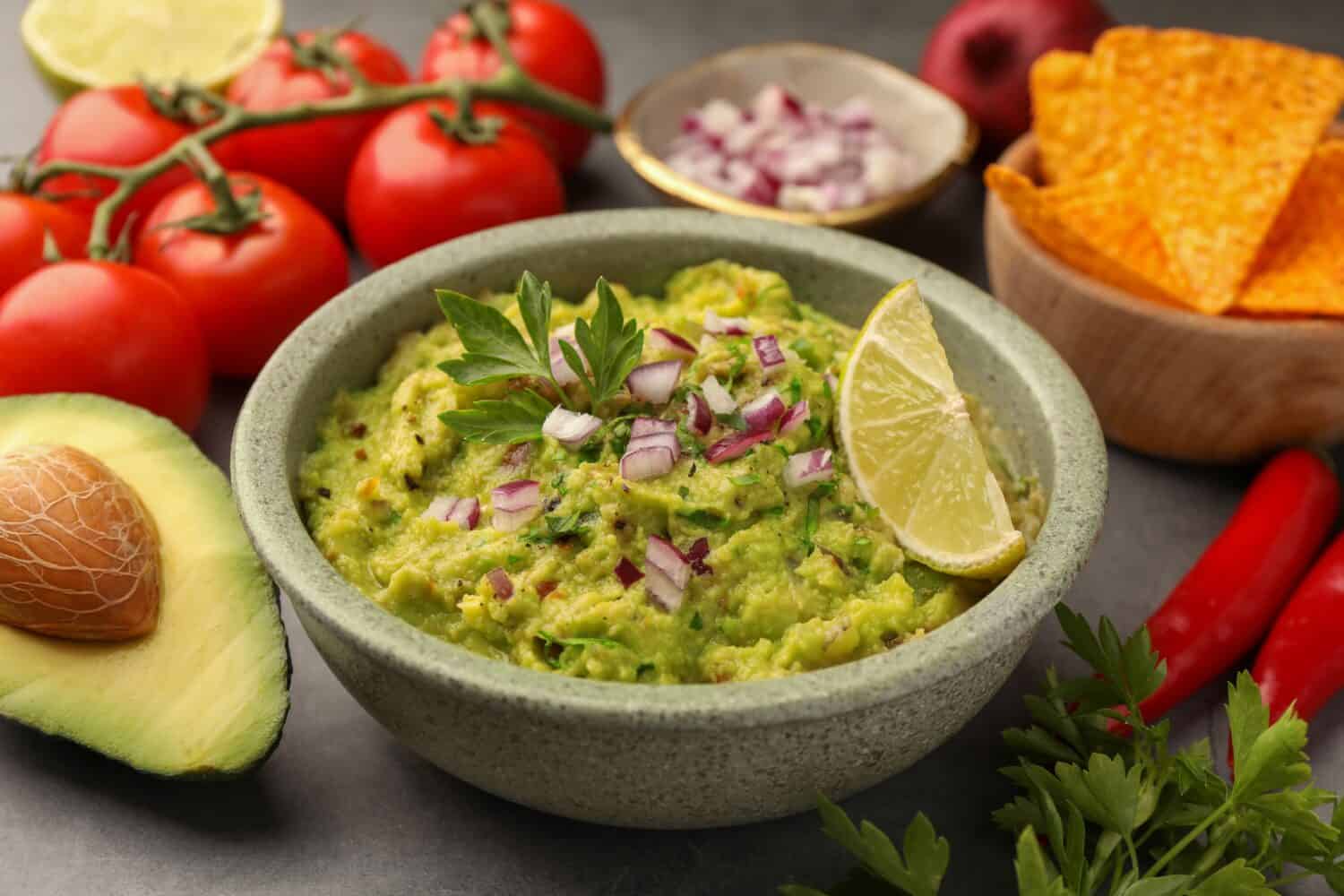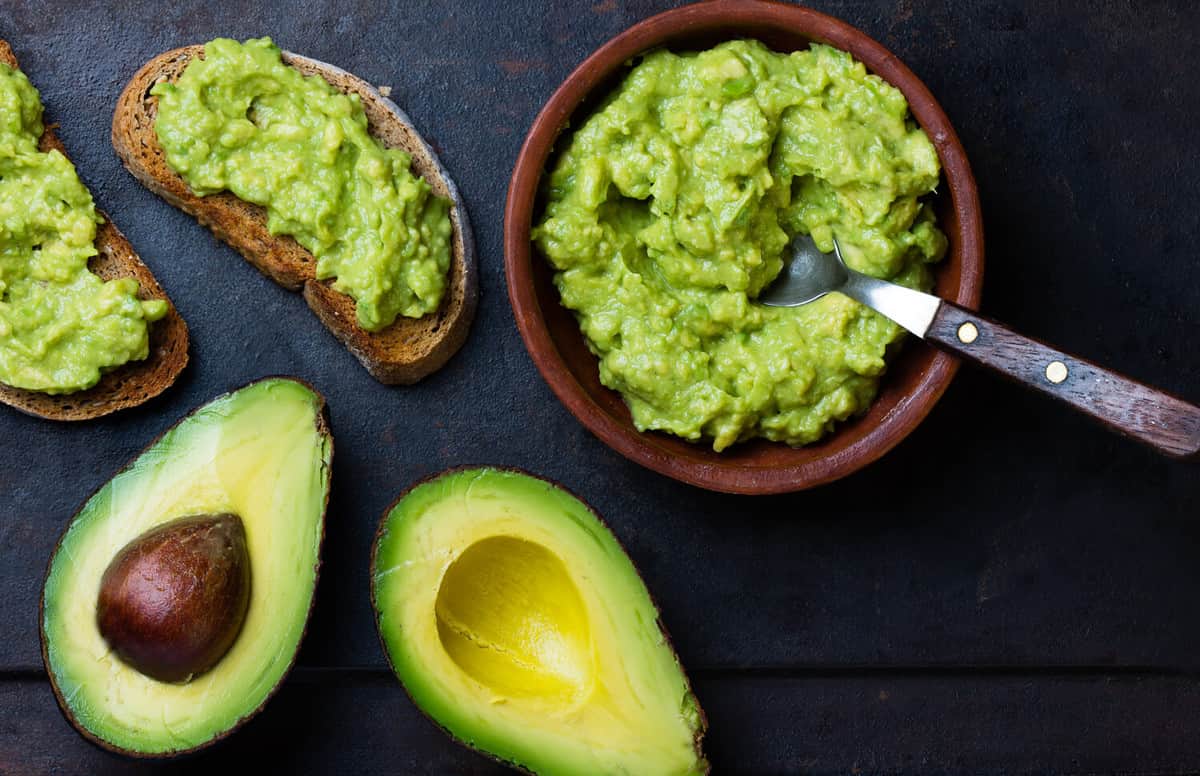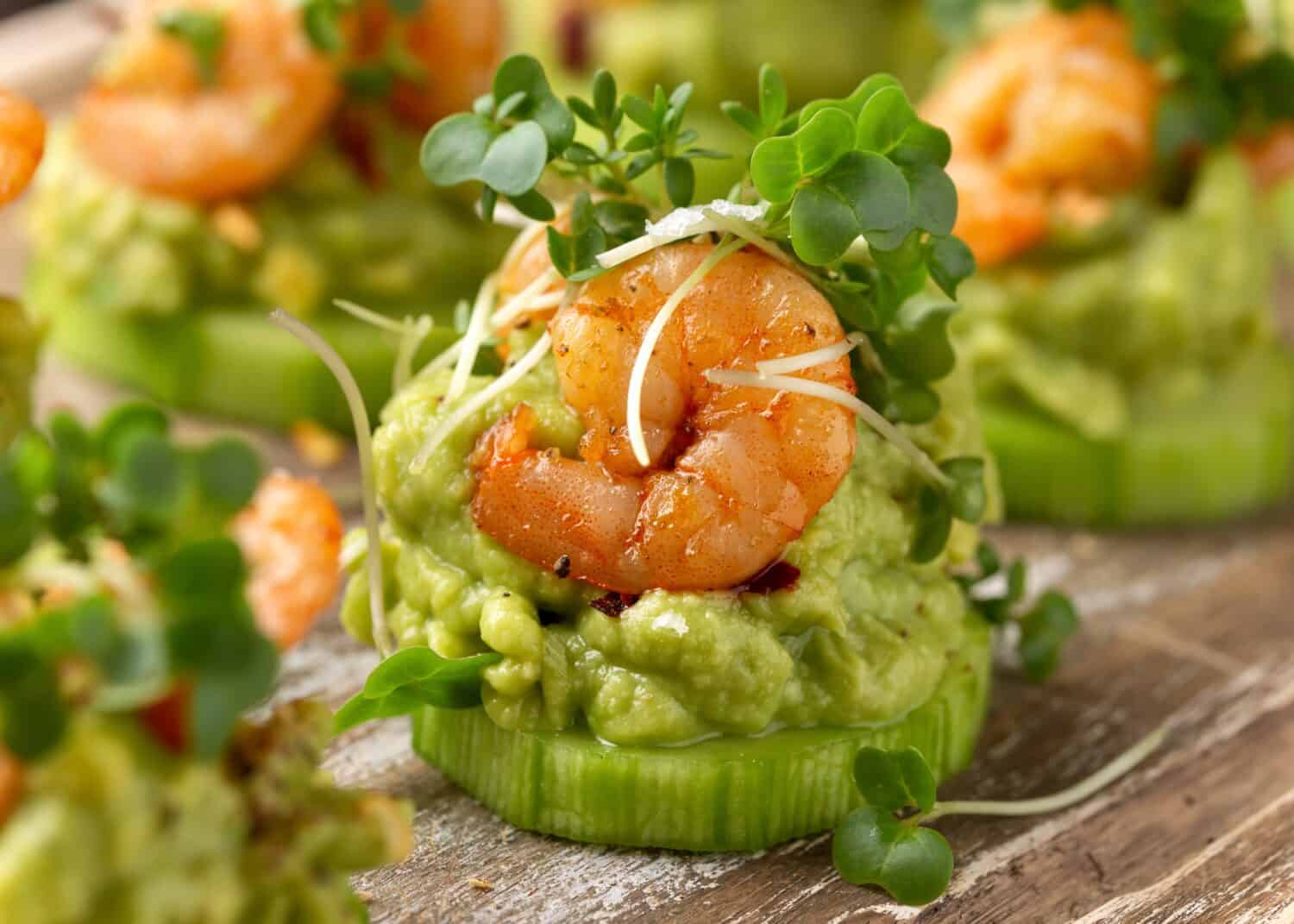Whether you’re a Taco Tuesday fanatic, an avocado enthusiast, or you’re simply looking for an effective way to introduce some “healthy fats” into your diet, guacamole reigns supreme. A staple at Mexican restaurants and beyond, it’s a creamy dish that can just as easily be enjoyed as the main affair as it can as a pre-meal appetizer. But is it healthy? So long as you’re thoughtfully pairing it with other foods that offer some nutritious value, the answer is essentially yes! Let’s dig in a bit and find out more about how science views its health advantages and disadvantages.

On its own, guacamole can be a benefit to your snack repertoire. Read on to find out more about its health advantages and disadvantages! Image: New Africa, Shutterstock
©New Africa/Shutterstock.com
What is Guacamole, and What Are Its Origins?
The history of guacamole likely goes back farther than you realize. In fact, it originated in the 1500s during the Aztec Empire in Central America! As prevalent as it is in America today, however, you might be surprised to learn that there was actually a ban on importing Mexican avocados until around 1997, so guacamole didn’t really make its mark on our culture until then. It’s hard to believe, considering it’s such a common find — from grocery stores to taco stands.
Nevertheless, the guacamole we know and love typically involves smashed avocados with ingredients mixed in, such as lime, salt, garlic, tomatoes, onions, and chiles. Its creamy texture gives it a somewhat addictive quality, especially when it’s slathered on tortilla chips. But you probably already know that, right?

There's just something about smashed ripe avocados that keeps us coming back for more. Shutterstock ID: 400051756, Photographer: Larisa Blinova
©Larisa Blinova/Shutterstock.com
What are the Health Advantages and Disadvantages of Guacamole?
Of course, the classic chips-and-guacamole combo is a longstanding favorite, but it likely comes as no surprise that whether or not guacamole is healthy on its own, fried chips aren’t the healthiest accompaniment. Thankfully, you can find substitutions that offer a similar crunch without the calories — veggies and pita chips, for example.
While it sometimes carries an unfortunate reputation for being “fattening,” that label comes with some serious caveats. Without its fried counterparts, guacamole is a pretty decent way to consume monounsaturated fats (otherwise known as healthy fats) along with fiber, folate, and potassium. In fact, studies show that one-third of your daily fiber intake can be met by consuming one-half an avocado — and guacamole certainly makes that happen!
Additionally, avocados are one of a select few foods with high levels of vitamins C and E, meaning they are chock full of antioxidants. This translates to improving digestion, lowering the risk of depression, preventing bone loss, supporting heart health, and protecting against cancer. Sure, guacamole isn't a food we might consider “low fat,” but it definitely has its perks. In fact, it can even help you lose weight depending on how you incorporate it into your diet. Did we mention avocados are a superfood? True story.
What Can You Do to Make Guacamole Healthier?
Here are a few ways you can enjoy guacamole without indulging in heaps of deep-fried tortillas:
Dip Vegetables
Not at all shocking, vegetables tend to up the health factor of a dish … by a lot. In guacamole's case, vegetables are a great way to add some crunchy texture without all the oils and salt. Carrots, celery, cucumbers, and jicama are all delicious dipped into guacamole.
Put it on a Sandwich
Craving guacamole but need a little protein, too? Spread some on a turkey sandwich! Alternatively, a veggie sandwich with cucumbers, sprouts, tomatoes, red onions, and arugula is simply delicious. For even more depth of flavor, add some feta cheese. You can even throw a little guacamole on a grilled turkey burger!
Add it to a Salad
Sure, lettuce is bland on its own, but what if you add guac? Talk about kicking it up a notch.
Put it on Pitas
Who needs tortilla chips when you can dip pitas? Since they're baked instead of fried, they're a notch or two up on the healthy meter. Don't get us wrong, they're still made of flour, so eating heaps of them isn't likely to help you lose weight. If you're really looking to go healthy, try kale chips!

Check out these vibrant, tasty (and healthy!) appetizers that feature grilled shrimp, guacamole, and microgreens on a cucumber round. Image: DronG, Shutterstock
©DronG/Shutterstock.com
Important Takeaways
- Guacamole is essentially healthy, given that avocados are a superfood and contain tons of vitamins, fiber, antioxidants, and “healthy fats.”
- Avocados have a reputation for being fattening, but they have their benefits. The trick to ensuring your guac is healthy is making sure you mindfully pair it with foods that possess nutritious value. In other words, goodbye deep-fried tortilla chips and hello, veggies!
Up Next:
- Homemade Guacamole Recipe
- Avocado Oil vs. Olive Oil: Health Benefits and How to Cook with Each
- Guacamole vs. Avocado: Which One Should You Choose?
The image featured at the top of this post is ©New Africa/Shutterstock.com